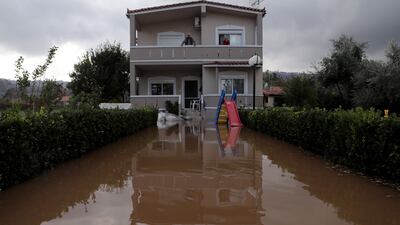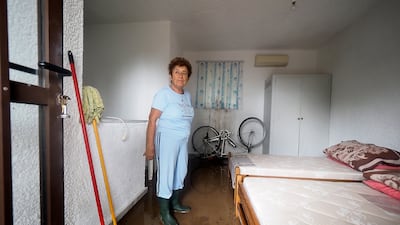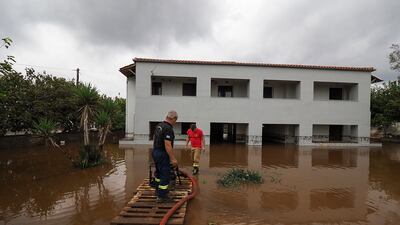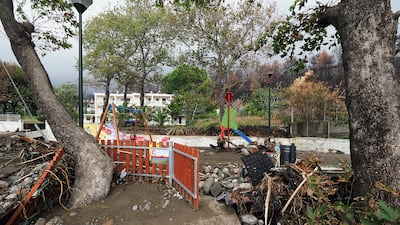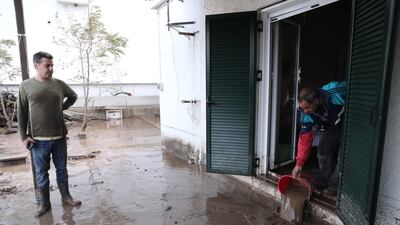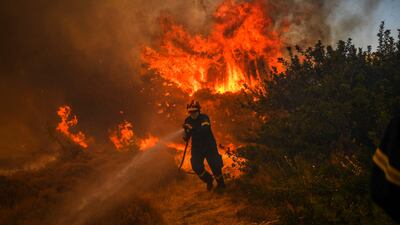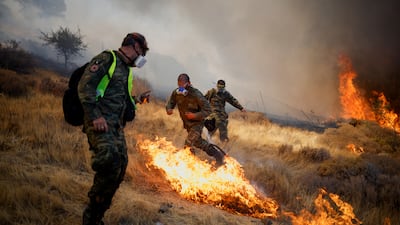More than 200 homes have been damaged by flooding on the Greek island of Evia, where devastating wildfires spread during searing heat less than two months ago.
Dozens of residents had to flee as the water moved in, while beaches were covered in mud that slid down from mountains that had no vegetation.
Larisa in central Greece was also heavily affected by the floods, with roads turning into rivers after being torn apart. Trees were uprooted on the popular tourist island of Corfu and some flights were cancelled on Sunday night.
Authorities are rushing to fix the damage amid fears that further storms will draw in the coming days. There were no reports of any casualties.
Officials who inspected the damage announced the government would accelerate a €20 million ($23.1m) aid package to the devastated areas.
More than 120,000 hectares of forest, bushes and farmland were burnt across Greece this summer during the country’s worst heat wave in more than 30 years. About a third of the damage was on Evia, Greece’s second-largest island.
The fires, which have been blamed on climate change, were part of a wider pattern of extreme, heat-related weather events to hit much of southern Europe over the summer.

